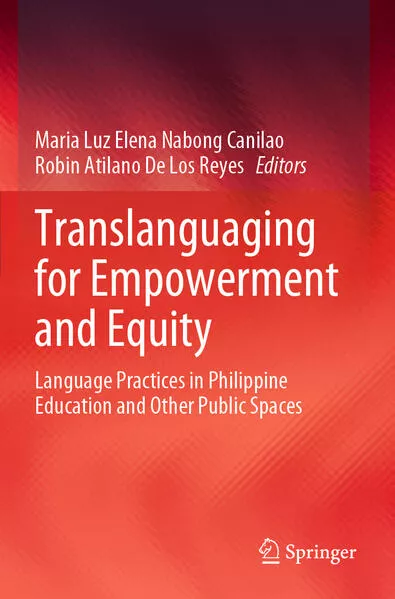
- Publikationen ca: 3
- Fragen & Antworten
Maria Luz Elena Nabong Canilao
Maria Luz Elena (Len) N. Canilao is Associate Professor at the Ateneo de Manila University (ADMU), Philippines. She has served as Associate Chair for Language Programs of the ADMU English Department and as Chair of the English Department at the Ateneo de Manila High School. Her published works focus on Global Englishes, translanguaging, multilingual education, language planning and policy, English language teaching (ELT) principles and practices, and materials design and development. She is an ACELT (Ateneo Center for English Language Teaching) teacher trainer and consultant. She has worked with various institutions including the Ateneo Center for Educational Development (ACED), Ateneo Language Learning Center (ALLC), Department of Education (DepEd), the Commission on Higher Education (CHED), and the British Council, Philippines. She has presented papers in various venues including AsiaTEFL, CELC, ESEA, IAWE, and KOTESOL international conferences. She is an educator and mentor whose primary advocacy is the empowerment of learners and teachers in multilingual contexts.
Robin Atilano De Los Reyes is Associate Professor and currently the School of Liberal Arts Dean at the Ateneo de Zamboanga University. He obtained his PhD in English language and literature from the Ateneo de Manila University. He was a grantee of Fulbright-Foreign Language Teaching Assistantship at Skyline College, California, USA. His research interests include translanguaging, multilingualism, linguistic landscape, and language planning and policy. He has presented his research at international conferences and has published in the Journal of Language, Identity and Education; International Journal of Multilingualism; and Asian Journal of English Language Studies. He has collaborated with USAID and AUSAID as consultant and trainer for literacy and teacher development programs in Region IX and ARMM (now BARMM). As an educator and teacher trainer, he advocates linguistic equity in and outside the classrooms in multilingual settings.
Translanguaging for Empowerment and Equity
This book investigates how translanguaging is employed for pedagogical purposes and describes how speakers use translanguaging in specific multilingual contexts. It examines the beliefs and perceptions that shape translanguaging in different public spaces and interrogates the notion of translanguaging through the lens of various Philippine public spaces.
Translanguaging for Empowerment and Equity
This book investigates how translanguaging is employed for pedagogical purposes and describes how speakers use translanguaging in specific multilingual contexts. It examines the beliefs and perceptions that shape translanguaging in different public spaces and interrogates the notion of translanguaging through the lens of various Philippine public spaces.
Translanguaging for Empowerment and Equity
This book investigates how translanguaging is employed for pedagogical purposes and describes how speakers use translanguaging in specific multilingual contexts. It examines the beliefs and perceptions that shape translanguaging in different public spaces and interrogates the notion of translanguaging through the lens of various Philippine public spaces.


